Lichen is a strange presence on this planet. Traditionally, scientists have understood lichen as a new organism formed through symbiosis between a fungus and an algae. But the science is evolving. It seems that there may be more than one species of fungus involved in this symbiosis, and some scientists have suggested that lichen could be described as both an ecosystem and an organism. Lichen may even be immortal, in some sense of the word.
In lichen, the poet Forrest Gander finds both the mystery of the forest and a rich metaphor for our symbiosis with one another and with the planet, for the relationship between the dead and the living, and for how our relationships with others change us indelibly. In his poem, “Forest,” lichen are a sensual presence, even erotic, living in relationship to the other beings around them. They resemble us, strangely, despite our dramatic differences.
The words of the poem teem with life, like the forest they explore, and Forrest’s marvelous reading of the poem adds a panoply of meanings and feelings through his annunciation, his breaths, his breaks. It’s phenomenal.
This poem, and his work more broadly, is about nothing less that who we are on this Earth and how we live—how we thrive—in relationship.
Forrest Gander writes poetry, novels, essays, and translations. He is the recipient of many awards and honors, including a Guggenheim Fellowship and the Pulitzer Prize in poetry for his book, Be With. As an undergraduate, like me, he studied geology, which became foundational to his engagement with ecological ethics and poetics.
Forrest often collaborates with other artists on books and exhibitions, including a project with the photographer Sally Mann. His latest book of poetry is a collaboration with the photographer Jack Shear, called Knot (spelled with a “k”). He recently collaborated with artist Ashwini Bhat on an exhibition at the Shoshana Wayne Gallery in Los Angeles, called “In Your Arms I’m Radiant.”
His poem, “Forest,” is from his 2021 collection of poems, Twice Alive.
Forrest has taught at Harvard University and Brown University. He spoke to me from his home in Northern California, where he now lives.
This episode of Chrysalis is part of the Chrysalis Poets series, which focuses on a single poems from poets who confront ecological issues in their work.
You can listen on Substack, Apple Podcasts, and other podcast platforms.
Please rate, review, and share to help us spread the word!
Forrest Gander
Born in the Mojave Desert in Barstow, California, Forrest Gander grew up in Virginia. He spend significant years in San Francisco, Dolores Hidalgo (Mexico), Eureka Springs, and Providence. With the late poet CD Wright, he has a son, the artist Brecht Wright Gander. Forrest holds degrees in both Geology and English literature. He lives now in Northern California with his wife, the artist Ashwini Bhat.
Gander's book Be With was awarded the 2019 Pulitzer Prize. Concerned with the way we are revised and translated in encounters with the foreign, his book Core Samples from the World was a finalist for the Pulitzer Prize and the National Book Critics Circle Award. Gander has collaborated frequently with other artists including photographers Sally Mann, Graciela Iturbide, Raymond Meeks, and Lucas Foglia, glass artist Michael Rogers, ceramic artists Rick Hirsch and Ashwini Bhat, artists Ann Hamilton, Tjibbe Hooghiemstra, dancers Eiko & Koma, and musicians Vic Chesnutt and Brady Earnhart, among others.
The author of numerous other books of poetry, including Redstart: An Ecological Poetics and Science & Steepleflower, Gander also writes novels (As a Friend; The Trace), essays (A Faithful Existence) and translates. Recent translations include It Must Be a Misunderstanding by Coral Bracho, Names and Rivers by Shuri Kido, and Then Come Back: the Lost Neruda Poems. His most recent anthologies are Pinholes in the Night: Essential Poems from Latin American (selected by Raúl Zurita) and Panic Cure: Poems from Spain for the 21st Century.
Gander's books have been translated and published in more than a dozen other languages. He is a United States Artists Rockefeller Fellow and has received fellowships from The National Endowment for the Arts and the Guggenheim, Whiting, and Howard Foundations. In 2011, he was awarded the Library of Congress Witter Bynner Fellowship. Gander was the Briggs-Copeland poet at Harvard University before becoming The Adele Kellenberg Seaver Professor of Literary Arts and Comparative Literature at Brown University where he taught courses such as Poetry & Ethics, EcoPoetics, Latin American Death Trip, and Translation Theory & Practice. He is an Emeritus Chancellor for the Academy for the Academy of American Poets and is an elected member of The Academy of Arts & Sciences.
Gander co-edited Lost Roads Publishers with CD Wright for twenty years, soliciting, editing, and publishing books by more than thirty writers, including Michael Harper, Kamau Brathwaite, Arthur Sze, Fanny Howe, Frances Mayes, Steve Stern, Zuleyka Benitez, and René Char.
“Forest”
By Forrest Gander
Erogenous zones in oaks slung with stoles of lace lichen the sun’s rays spilling through leaves in broken packets a force call it nighttime thrusts mushrooms up from their lair of spawn mycelial loam the whiff of port they pop into un- trammeled air with the sort of gasp that follows a fine chess move like memories are they? or punctuation? was it something the earth said to provoke our response tasking us to recall an evolutionary course our long ago initation into the one- among-others and within my newborn noticing have you popped up beside me love or were you here from the start a swarm of meaning and decay still gripping the underworld both of us half-buried holding fast if briefly to a swelling vastness while our coupling begins to register in the already awake compendium that offers to take us in you take me in and abundance floods us floats us out we fill each with the other all morning breaks as birdsong over us who rise to the surface so our faces might be sprung
Recommended Readings & Media
Forrest Gander reading his poem “Unto Ourselves” from Twice Alive.
Transcript
Intro
John Fiege
Lichen is a strange presence on this planet. Traditionally, scientists have understood lichen as a new organism formed through symbiosis between a fungus and an algae. But the science is evolving. It seems there may be more than one species of fungus involved in this symbiosis. And some scientists have suggested that lichen, and could be described as both an ecosystem and an organism. Lichen may even be immortal in some sense of the word.
In lichen, the poet Forrest Gander finds both the mystery of the forest and a rich metaphor for our symbiosis with one another and with the planet, for the relationship between the dead and the living, and for how our relationships with others change us indelibly. In his poem, "Forest," lichen are an essential presence, even erotic, living in relationship to the other beings around them. They resemble us strangely, despite our dramatic differences.
The words of the poem teem with life, like the forest they explore, and Forrest's marvelous reading of the poem as a panoply of meanings and feelings through his enunciation—his breaths, his breaks; it's phenomenal.
This poem in his work, more broadly, is about nothing less than who we are on this earth, and how we live; how we thrive in relationship.
I'm John Fiege, and this episode of Chrysalis is part of the Chrysalis Poets series.
Forrest Gander writes poetry, novels, essays, and translations. He is the recipient of many awards and honors, including a Guggenheim Fellowship, and the Pulitzer Prize in poetry for his book Be With.
Forrest often collaborates with other artists on books and exhibitions, including a project with a photographer Sally Mann. His latest book of poetry is a collaboration with a photographer Jack Scheer called Knot. He recently collaborated with artist Ashwini Bhat on an exhibition at the Shoshana Wayne Gallery in Los Angeles, called In Your Arms I'm Radiant.
His poem, "Forest," is from his 2021 collection of poems, Twice Alive.
Forrest has taught at Harvard University and Brown University. He spoke to me from his home in Northern California, where he now lives.
Here is Forrest Gander reading his poem "Forest."
Poem
Forrest Gander
“Forest”
Erogenous zones in oaks slung with stoles of lace lichen the sun’s rays spilling through leaves in broken packets a force call it nighttime thrusts mushrooms up from their lair of spawn mycelial loam the whiff of port they pop into un- trammeled air with the sort of gasp that follows a fine chess move like memories are they? or punctuation? was it something the earth said to provoke our response tasking us to recall an evolutionary course our long ago initation into the one- among-others and within my newborn noticing have you popped up beside me love or were you here from the start a swarm of meaning and decay still gripping the underworld both of us half-buried holding fast if briefly to a swelling vastness while our coupling begins to register in the already awake compendium that offers to take us in you take me in and abundance floods us floats us out we fill each with the other all morning breaks as birdsong over us who rise to the surface so our faces might be sprung
Conversation
John Fiege
Thank you. It's so wonderful hearing you read it, the intonation and the flow of the words and your emphasis is just like completely new hearing you read it, rather than just reading it myself. I want to start with the sexual imagery. You begin with "erogenous zones in oaks, slung with stoles of lace lichen." And that last line, "stoles of lace lichen the," that was one of the things that jumped out to me, is the is at the end of the line there. And you read it as if it was the end of the line rather than pausing and using it as part of the next stanza. But in addition to these, this erogenous zone, you've got thrusting mushrooms in a layer of spawn, and sexual imagery doesn't often accompany decomposition, and decomposers like lichen and in fungi, but this combination brings a strong sense of the interconnectedness of life and death of reproduction and decomposition. And so this is the cyclical world we live in, even though we're often myopically or delusionally, focused on some kind of progressive, linear, supernaturally immortal view of our lives. How are you imagining the reader encountering the beginning of this poem, and its images of sexually charged decomposition?
Forrest Gander
I'm, uh, trying to connect decomposition and eros, or the merging of more than one species, one individual, into a community. And I'm trying to use a syntax, which you notice, that also doesn't easily separate itself into clear, discrete sentences, but seems to be connected at both ends. And the sense is for us to lose our security in reading our feeling that we dominate the reading that we can figure it out quickly and divide it up into these parcels, and instead, create a kind of reading experience that mimics the kind of experience that we actually live, where everything is connected, and, and where the erotic and the decomposing are involved in the same processes.
John Fiege
Yeah, and thanks to Governor Jerry Brown, lace lichen is now the official California state lichen making...
Forrest Gander
(Chuckles) Isn't that great?
John Fiege
...making California the first state to recognize a lichen as a state symbol. And the poem, like you were saying, how the syntax is mimicking the organic world. Visually, the line breaks and the varied intended indentations appear as local lace lichen itself. Can you talk about your relationship with lichen?
Forrest Gander
Yes. You know, I think like you think, which is why you're doing these podcasts, that we're in an exigent historical moment where the environment is rapidly changing, and species are rapidly disappearing. And we've been hearing about this for decades without really responding in a sufficient way to the exigency of our situation. So I'm trying to find models of, instead of just heaping on more climate information horror, I'm trying to find models of other ways of thinking about our relationship with the world. And one, since I have a background in science—I have a degree in geology—is a scientific one. And I worked with a mycologist, named Anne Pringle, who taught me to see fungus and lichen in places where I hadn't been seeing them before. And it turns out lichen covers about 92% of the world you can find lichen in. And despite that, most people know what it is. They've seen, like on rocks, green, brown, little spots. It turns out, scientists don't really know what lichen is.
John Fiege
It's cool to find something that scientists don't feel like they know that much about.
Forrest Gander
It is! And yet, it seems like there's more more of those things that we don't really know that we can't measure, that we can't feel like we are in control of it all. And lichen is these two—more actually, it's not just an algae and cyanobacteria, or Sienna bacteria and fungus that get together it there's more organisms that are involved that come together, and are transformed completely and can't go back to what they were. And they formed this new organism that acts completely differently. And we're not so different from that, that our own bodies are full of other organisms, and even our DNA contains DNA of parasites that long ago became incorporated into our system. So lichen gives us a way of thinking about the mutualities that our lives are really made of.
John Fiege
Yeah, and this poem, "Forest," is part of that collection, Twice Alive, where you have "Post-Fire Forest" and other poems related to wildfire and the aftermath of them, and that collection follows on the heels of your previous collection, Be With, which, you know this moving series of eulogistic poems to your late wife. It seems that Be With wrestles with and processes personal grief, while "Twice Alive" adds the element of ecological trauma. How are those two realms of trauma-related phenomena—the personal and the ecological? And how do they play out in the poem?
Forrest Gander
The poems of "Be With”… they are so personally painful to me, I couldn't even read from the book after I published it. I think I read twice and then stopped reading from it. And one, as Albert Camus says, you can't live on in a grief or depression that's so terrible that it doesn't leave you with any openings. And so I wanted to find positive things to write about. But we're living during an ecological crisis. So I'm, and I've been writing about that crisis through really most of my adult life. But I wanted to find positive ways of reimagining our relationship with the world and maybe with death also. Because in lichen, and in the metaphor of like, and work, to two or more things come together and are transformed. I thought of human intimacy and the way that my relationship, my close relationships, I'm transformed in those relationships, I become something else. And that thing, which is welded in love, has a durability, and lasts. And in the same way, scientists—some scientists are saying that our whole idea of death comes out of our mammalian orientation. And that may be because some things don't die, and have theoretical immortality, and lichen, given enough nutrients, may be one of those things.
John Fiege
That's amazing. How does it make you feel to think about the possibility that there's something that actually has some kind of immortality?
Forrest Gander
How does it make us feel? I think it checks what we have always thought we've known. And it checks our instinctual perspective. And that kind of check, I think, is really helpful in terms of how we begin to reimagine our place in a world of other species that are completely different from us, and yet, share so much DNA.
John Fiege
Can you tell me about the Sangam literary traditions that you've referenced as an important element of your recent work in Eco-poetry?
Forrest Gander
Sure! What brought me to Sangam was looking for other models of relationships between the human and the nonhuman. And it turns out that, you know, 2000 years ago, in Southern India, there was a blossoming of literature, which came to be called Sangam, which means convergence, and that one of the two styles of that poetry, which is called Akam, it was considered not only unethical but impossible to write about human emotions, as though they were independent of the landscape around us, which affects our perceptions. And, it impacts how and what we feel. And so, using that model for poems and finding that the same five landscapes that come up in the Sangam poems are the same five landscapes that one can find in California, where I live, I used those Sangam poems as a kind of model for writing poems that expressed that mutuality of, of the human and the nonhuman in the five landscapes of California in my home.
John Fiege
isn't that so satisfying on so many levels to be able to look so far back in history? And to see people encountering the world in ways that are so resonant with the ways you are, we are encountering the world today in a completely different part of the planet, even? It's kind of amazing.
Forrest Gander
It is! And yeah, I think it's what we will find everywhere that, you know, the Native Americans in what we now called the United States. They didn't think that these European invaders would last very long because the European invaders hadn't lived for thousands of years, with animals and plants of this continent. And so they thought we would fail. And we have failed, we've failed to live in a way that takes into account our interdependence with the nonhuman world.
John Fiege
Well, jumping back into the poem, your word choices and juxtapositions and the sounds, and the rhythms of the words in the poem are so powerful. Here's a section that begins at the end of a stanza and carries on to the next, "a force call it nighttime thrusts mushrooms up from their lair." I like this idea of nighttime as a force that has the power to push things up out of the earth. And nighttime is when we rest, but also maybe when we have sex, or maybe when we don't have sex often enough. But how is nighttime of force for you?
Forrest Gander
Because there are so many processes, especially plant processes, that take place after the sun goes down. And that often, we're not thinking about night being a reenergizing process for other species. And also, I'm connecting nighttime, and that darkness with the half-buried to the things that go on in the dark, the things that go on underground.
John Fiege
Right! Well, here's another section I'd like to dig into. If you don't mind me reading, I feel bad reading your poem as you read it so beautifully, but just to go through it again. Like memories, are they or punctuation? Was it something the earth said to provoke a response, tasking us to recall an evolutionary course, our long-ago initiation into the one among others? So in this section of the poem, you shift from third person into first person plural, and we don't exactly know what the 'we' or the 'us' is, but I'm imagining it to be our species collectively speaking with the earth here. I personified a personified Earth. And each of us is merely one among others, one person among other people, but also humans are just one among many other species on the earth. So what's going on here, with the earth being provocative, the shift to first person plural, and to us thinking about our evolutionary course?
Forrest Gander
So I'm thinking of mushrooms as kind of exclamation marks that come up and call our attention to the nonhuman, and also how memories are like that, that they pop up from the darkness of our mind into our conscious mind. And that, what they remind us of, what any contact with a nonhuman reminds us of, is our involvement with them; our long ago initiated course as an interdependent species, as a community in a community, that we are one among many others, as you say, and that if we forget that, then we don't take care of the earth because we don't recognize that it's part of taking care of ourselves. And for many human communities and cultures earlier, this was de rigueur, it was understood that, that we were involved. Our lives were educations in how to live with the world around us. But we've become so separated from that in our urban cultures that we need reminding.
John Fiege
Right, right. Well, and that reminds me of another section of the poem, we have this phrase "newborn noticing." So the stanza it's in is, "and within my newborn noticing, have you popped up beside me, my love? Or were you here from the start?" And I love this idea of newborn noticing it suggests that we're noticing a new, but also noticing, as a newborn does, like Lao says—‘newborn baby, unbiased, undistracted, nonjudgmental.’ And this section feels like it touches on our deeply ingrained, anthropocentrism and ignorance of other species, and maybe how poetry can help us notice the world around us more fully, especially the other-than-human world. What is this 'newborn noticing' to you?
Forrest Gander
Right, I'm so glad you bring up Lao Tzu, also. Lao Tzu says, "Those who are not in constant awe; surely some great tragedy will befall them." And hear the 'newborn noticing,' again, that earlier passage you mentioned, that connects the punctuation to coming out of the ground of the mushrooms, to memories that come out of the darkness of our mind into our conscious mind. That's also the birth of something.
John Fiege
So here's... oh, go ahead.
Forrest Gander
I just like that you've been, I mean, some people ask, you know, what can we do in this environmental crisis, and one of the things we can do is to try to have a chorus of not just scientists and biologists, but a chorus of artists and priests, and poets. And that's what you've been doing: putting together that chorus of responses to our crisis. And I think it's going to take the voices of a lot of people from a lot of different trajectories, to affect any kind of change. So I'm proud of what you're doing.
John Fiege
Yeah, I totally agree. And I'm glad you notice and appreciate that (chuckles). You know, one thing I say all the time is, you know, our environmental discourse is dominated by science, economics, and policy. And those three things are all extremely important, and we have to keep on top of all of them. But it's leaving out the whole rest of the human experience. And if we are not all focused on this problem, and dealing with it in the ways that we know how, and the ways that we know how to interact with the world, we just... we can't get there because the problem is... it's so overwhelming as it is to leave it up to a small portion of the population to address is not sufficient,
Forrest Gander
Right? Or it would have changed already. And I think what art and poetry and literature can do is add a kind of an emotional and psychological approach to it, that can add it to the science, and can be more convincing,
John Fiege
Right? And not even just like, a way to convince people, but just a way to, to understand and feel the problem is so much beyond, you know, just a reason-based problem that you can solve or not, you know, but that it's part of who you are and what you value in the world and what you know, get you up out of bed every morning.
Forrest Gander
That's beautifully put. Yeah, I agree with you.
John Fiege
Well, here here's another line I love from the poem, "A swarm of meaning and decay." And this goes back to that cyclical view of life and death; birth and decomposition. And it also brings in this concept of meaning—this thing that humans are obsessed with. Our perpetual question of why—what is the meaning of life? And so much of the foundation of our understanding of meaning is bound up in the perpetuation of life. And oftentimes, in the avoidance of death, despite the need for death to bring life. Can you talk more about this "swarm of meaning and decay?"
Forrest Gander
So the "swarm of meaning and decay" comes just a moment after my "newborn noticing." And here, the poem merges the human—we don't really know for sure whether I'm talking about human beings, or I'm talking about other forms of life that are emerging from the underworld, like fungus, for instance. And in that merging of subjectivity and world, I'm trying to emphasize how the human life and the processes of the life—lives that aren't human—are completely related to each other. It's interesting to me that the kind of poetry that I write is sometimes categorized as eco-poetry, the idea of Eco-poetry is that there might be a way of writing in which human subjectivity and the non-human aren't so discrete from each other and that we might be able to show in writing, a different way of experiencing, or really, the real way of experiencing our relationships with otherness, which is that our subjectivities merge into otherness. That we're made of multiple creatures and were made by multiple interactions with the world. And I think that's what art has always done, is that it's expanded our way of thinking of the human.
John Fiege
Definitely, definitely. Well, let me jump into the last two stanzas in the poem, which read, "And abundance floods us floats us out, we fill each with the other all morning breaks as songbird over us who rise to the surface, so our faces might be strong." And again, there's so much richness in this language. But to start off with, how does abundance, both flood us and float us?
Forrest Gander
Well, our lives are abundant; the world is abundant. And that sense of merging with another in intimacy, in love, and merging with the world is a sense of expanding. This, you know, the notion of the self, and that's an abundance, it's recognizing our collaborative relationship with otherness. And it floats us out of ourselves so that we're not locked into our own minds, our own singular psyches, we fill with each other. And then again, here, the syntax is working in two ways. We fill with each other, we fill with the other "all morning". And then we revise that as we, as we make that break. We fill with the other "all morning breaks as birdsong over us." And I'm thinking here about how human beings, Homo sapiens, from the start, almost all of human beings have experienced birdsong since we were born, since early in our lives. We've grown up with the songs of birds infused in our minds, in our hearing. And how much of a part of us birdsong is. We're rising to the surface like the mushrooms coming from underground to blossom so that our faces might be sprung. And here again, the human and the nonhuman? Am I talking about mushrooms here? Or am I talking about human beings? I'm purposely talking about both in a way that is perhaps indistinguishable.
John Fiege
And as you mentioned, the poem starts with the imagery of the mushrooms thrusting upward. And then, at the end here, it seems that the we in the poem rises to the surface. And the last line of the poem is, so our faces might be sprung. This sense of emergence comes to that most intimate thing—our faces—and this vague 'we' suddenly has a face. And we are like flowers or emergent mushrooms in the nighttime. Where does this poem leave you? And how do you think about where you'd like to leave the reader at the end?
Forrest Gander
I think in that uncertainty about where the human and where the non-human begins, I think that's the strategy of the poems, which is presenting not some romantic notion of our involvement with others, but I think a form of realism, it's recognizing that our involvement with otherness is entire, that were composed of otherness. So I think the feeling of what a mushroom is, is just the face, it's this little—fruited body, they call it—of an organism that's underground that we don't see at all. And, in a way, that's what our lives are also: this brief flourishing of the face of something that's connected to a body that's much larger than ours. And that ambiguous space is what I'm interested in, in thinking about.
John Fiege
And does that noticing or that knowledge calls us to do something? In particular, do you think?
Forrest Gander 32:43
Well, I don't want to turn the poem into a didacticism. But the poem presents a vision. And that vision can contribute to the way that we see ourselves in the world. And the way we see ourselves in the world forces us to make ethical decisions about how we are and what we do. So in, I want to provide a vision or share a vision. And I want readers to do with it what they feel called upon to do. There have been different ways that we've understood our relationship and our role in a living Earth, through time and in different cultures. And the worldview that we have now, which is using the Earth very transactional, can be changed. And that art can inspire us to imagine those kinds of changes. In some ways, we're like the yeast that gets put with grapes to make wine. The yeast, which is a fungus, eats the sugar, and it secretes basically alcohol. That's what where we get alcohol from, and it proliferates and proliferates, and keeps producing alcohol until at about 13%. The yeast kills itself it dies because it can't live with an alcohol content greater than that. And we're like that yeast on this earth. We’re using up all of the resources, and we're proliferating, and pretty soon, there's not going to be room for us to live on the world will pollute ourselves out of existence, and the world will go on. It's just that we won't be part of it.
John Fiege
That's a beautiful place to end; with yeast, and lichen, and erogenous zones. All swirling around together. Can you end by reading the poem once again?
Forrest Gander
Sure. So, 'forest' is one of the five major landscapes that appear in the Sangam poems.
[See poem as transcribed above]
John Fiege
Forrest, thank you so much. This has been wonderful.
Forrest Gander
Thanks a lot, John. I'm really pleased to be a part of your series and to be part of the chorus of voices that you're putting together.
John Fiege
And it's a beautiful voice that you've brought to it.
Outro
John Fiege
Thank you so much to Forrest Gander. Go to our website at chrysalispodcast.org, where you can read his poem "Forrest" and find our book and media recommendations.
This episode was researched by Elena Cebulash and edited by Brody Mutschler and Sophia Chang. Music is by Daniel Rodriguez Vivas, mixing is by Juan Garcia.
If you enjoyed my conversation with Forrest, please rate and review us on your favorite podcast platform. Contact me anytime at chrysalispodcast.org, where you can also support the project, subscribe to our newsletter, and join the conversation.

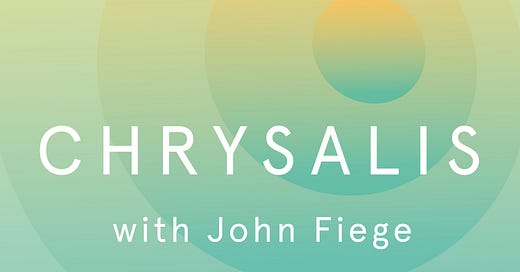
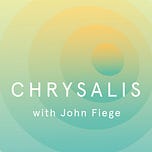

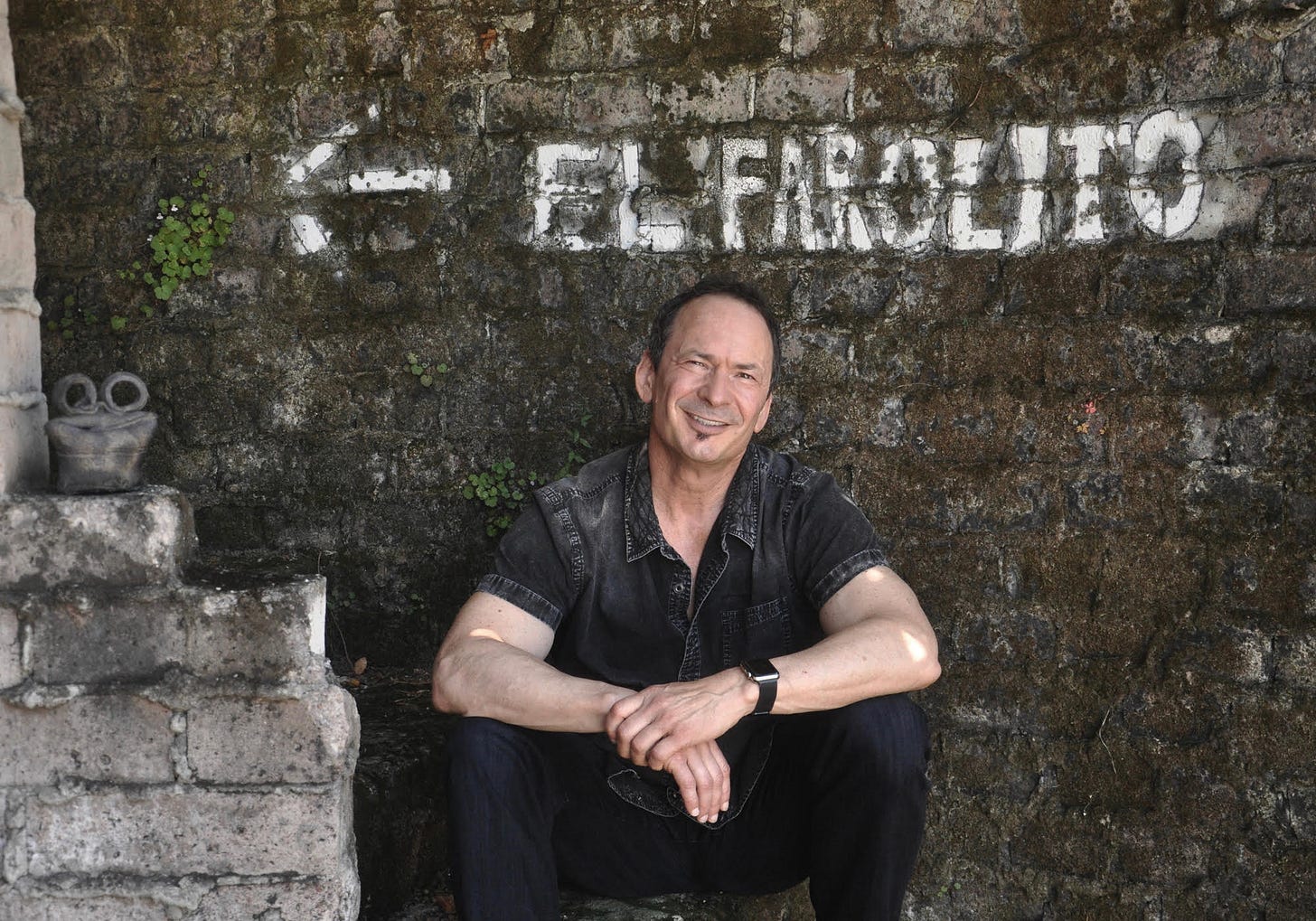
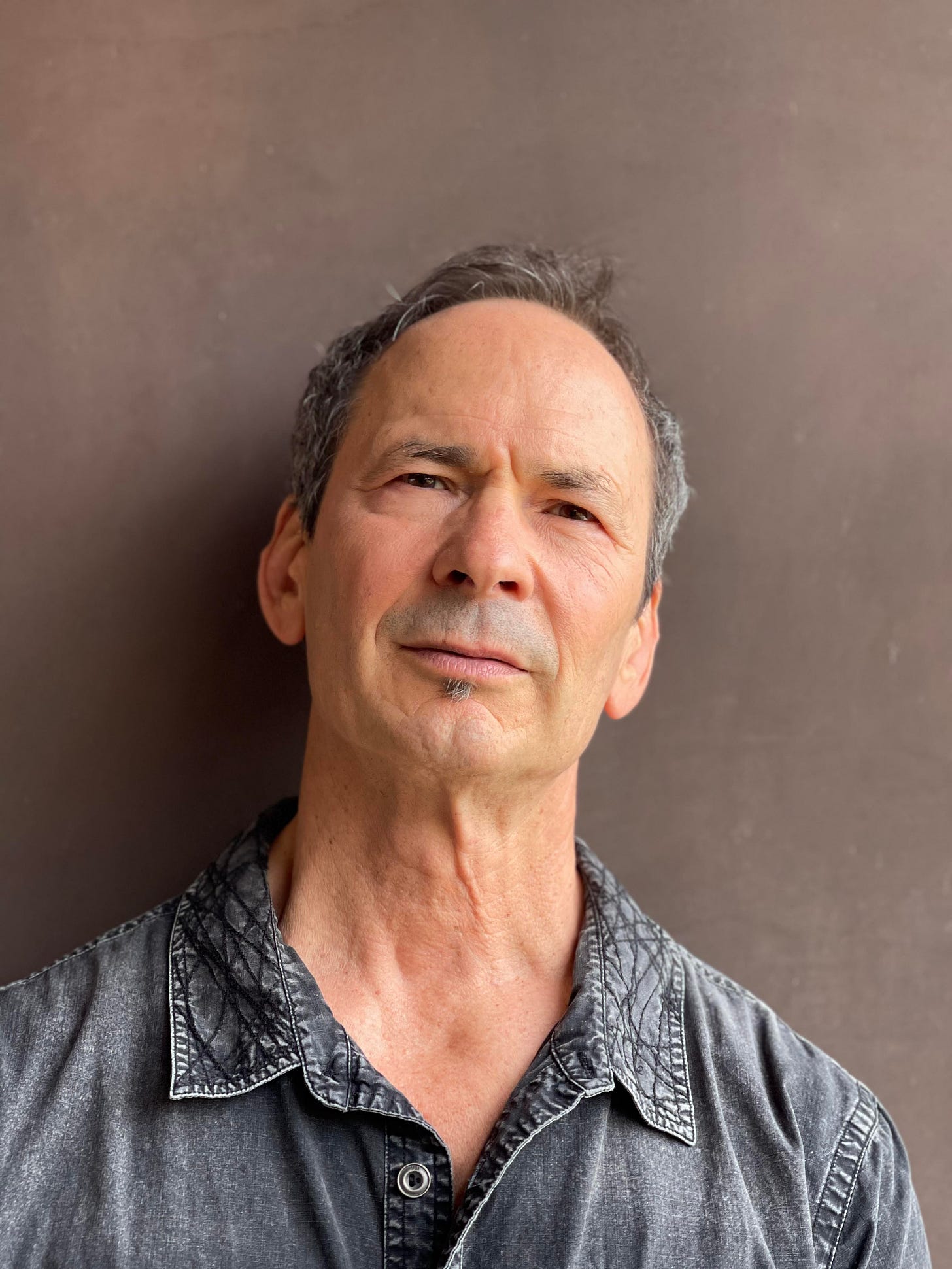



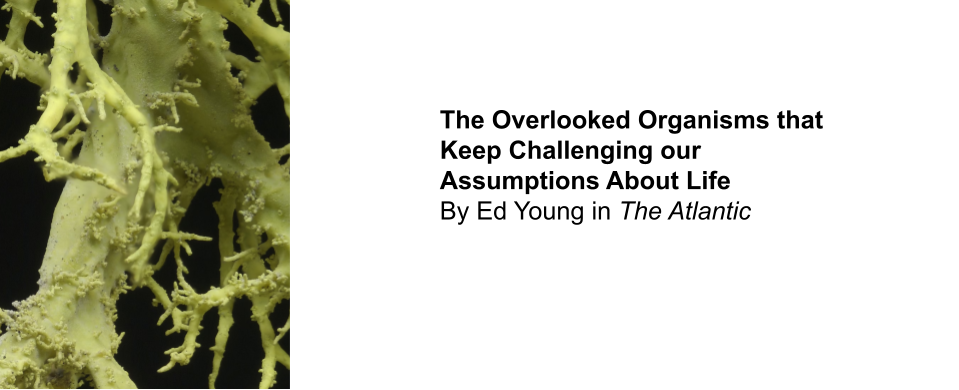

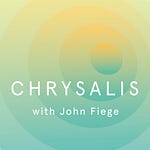
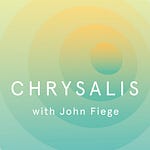
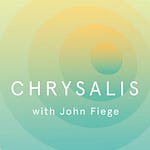
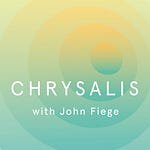
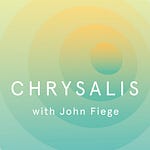
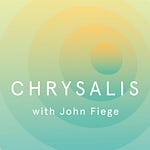
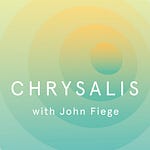
Share this post